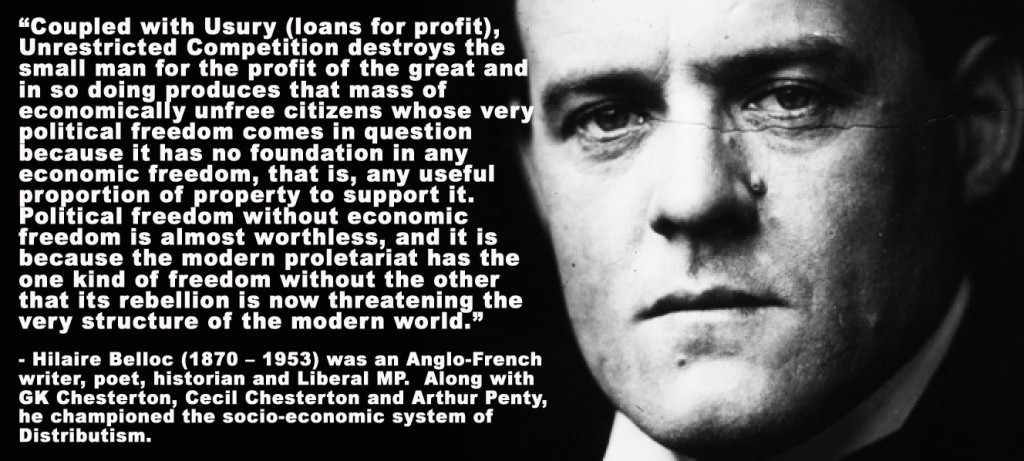Distributism As A Means of Achieving Third Way Economics (Part 2)
THIS IS THE second part of an article written by Richard Howard way back in 2005. It originally appeared on the web-site – http://www.hsnsw.asn.au/index.php – of the Humanist Society of New South Wales..
This article should be read directly on from part 1 http://nationalliberal.org/distributism-as-a-means-of-achieving-third-way-economics-part-1The National Liberal Party feels that Distributism offers a way of ensuring economic self-determination for our people. This is because Distributism regards property ownership as a fundamental right and that property and the means of production should be spread as widely as possible. This is in stark contrast to property and the means of production being controlled by the state – Socialism – or by an elite of powerful owners – Capitalism. Here, it can be seen that both Capitalism and Socialism equate to centralisation whilst Distributism equates to freedom..We invite our readers to share their thoughts when this article is reproduced on our Facebook site https://www.facebook.com/groups/52739504313/ It goes without saying that there are no official links between Richard Howard, the Humanist Society of New South Wales and the National Liberal Party. You can read the original article here http://hsnsw.asn.au/Distributism.html Readers will note that this article uses the phrase ‘Third Way.’ Here it is used in a context that distinguishes it from capitalism and socialism – indeed, it refers to an economic position that goes way beyond both capitalism and socialism.
.
.
Distributism As A Means of Achieving Third Way Economics (Part 2)
Date: September 23, 2018
Categories: Articles
































